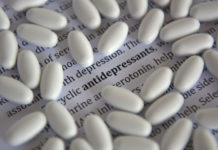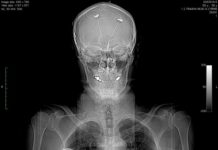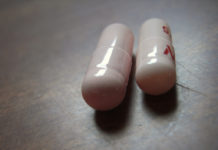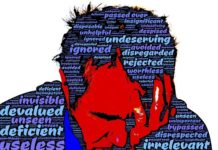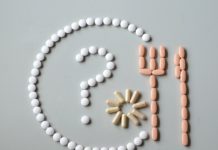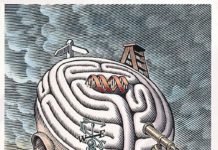Transcranial Magnetic Stimulation No Better Than Placebo for Treatment-Resistant Depression
A new study in JAMA Psychiatry found that transcranial magnetic stimulation was no better than placebo for treatment-resistant depression.
Study Deems Support, Not Drugs, Best for Youth at Risk of Psychosis
Research by five U.K. universities across multiple sites for up to two years divided 288 young adults (14-35 years) deemed at risk for psychosis...
New Study Casts Doubt on Efficacy of Ketamine for Depression
A new study, published this month in the Journal of Affective Disorders, investigated the effectiveness of weekly intravenous ketamine injections as a treatment for...
Study Finds Hearing Voices Groups Improve Social and Emotional Wellbeing
Hearing Voices Network self-help groups are an important resource for coping with voice hearing, study finds.
Ioannidis Questions Strength of Psychology and Neuroscience Literature
Last week, well-known Stanford scientist John Ioannidis and his colleague Denes Szucs released a new analysis online. They examined research published in eighteen prominent...
Garbage In–Garbage Out: Systematic Reviews and Meta-Analyses can tell us a Flawed Story
Well known Stanford University researcher John Ioannidis published a new paper this week criticizing the use and production of systematic reviews and meta-analyses, often...
Has Evidence Based Medicine Been Hijacked?
John Ioannidis claims that the idea of evidence based medicine has been “hijacked to serve agendas different from what it was originally aimed for,” in a newly published critical essay in the Journal of Clinical Epidemiology. Ioannidis frames the essay as a continuation of a conversation with David Sackett, widely considered the founder of evidence based medicine.
Treatment Guidelines Should Not Be Written by Professional Societies and Insiders
John Ioannidis, a leading expert on research methods, takes a critical look at the way professional societies write treatment guidelines.
New Study Concludes that Antidepressants are “Largely Ineffective and Potentially Harmful”
A new study published in Frontiers in Psychiatry concludes that “antidepressants are largely ineffective and potentially harmful.”
Is Long-term Use of Benzodiazepines a Risk for Cancer?
A large study of the population in Taiwan reveals that long-term use of benzodiazepine drugs, commonly prescribed for anxiety, significantly increases the risk for brain, colorectal, and lung cancers. The research, published open-access in the journal Medicine, also identifies the types of benzodiazepines that carry the greatest cancer risk.
Fighting for the Meaning of Madness: An Interview with Dr. John Read
Akansha Vaswani interviews Dr. John Read about the influences on his work and his research on madness, psychosis, and the mental health industry.
What Does Social Justice Really Mean for Psychologists?
Without clarity and consensus around what social justice means, psychologists risk perpetuating injustices that undermine their stated mission.
Adverse Effects: The Perils of Deep Brain Stimulation for Depression
Hundreds of people have been given remote control deep brain stimulation implants for psychiatric disorders such as depression, OCD and Tourette’s. Yet DBS specialists still have no clue about its mechanisms of action and research suggests its hefty health and safety risks far outweigh benefits.
Researchers Test Harms and Benefits of Long Term Antipsychotic Use
Researchers from the City College of New York and Columbia University published a study this month testing the hypothesis that people diagnosed with schizophrenia treated long-term with antipsychotic drugs have worse outcomes than patients with no exposure to these drugs. They concluded that there is not a sufficient evidence base for the standard practice of long-term use of antipsychotic medications.
Antidepressant Use Leads to Worse Long Term Outcomes, Study Finds
Results from a 30-year prospective study demonstrated worse outcomes for people who took antidepressants, even after controlling for gender, education level, marriage, baseline severity, other affective disorders, suicidality, and family history of depression.
Researcher Acknowledges His Mistakes in Understanding Schizophrenia
Sir Robin Murray, a professor at the Institute of Psychiatry, Psychology, and Neuroscience in London, states that he ignored social factors that contribute to ‘schizophrenia’ for too long. He also reports that he neglected the negative effects antipsychotic medication has on the brain.
Mobile Apps for Mental Health Lack Transparency in Data Sharing
Research illustrates privacy concerns with how mental health applications collect and share users’ data.
J&J Earnings Down 89%
The Wall Street Journal reports that Johnson & Johnson's fourth-quarter earnings fell 89% following settlements for misrepresenting the risks and benefits of Risperdal, its...
Psychotropic Medications Serve as Powerful Tools for U.S. Military, Imperialism
Ethnographic research sheds light on extensive psychopharmaceutical use by soldiers in post 9/11 U.S. wars.
No More Tears? The Shame of Johnson & Johnson
In 1972, prisoners at Holmesburg Prison in Philadelphia were paid $3 to have their eyes held open with clamps and hooks while Johnson & Johnson's baby shampoo was dropped into them. In 2011, mothers of newborns were arrested when their babies tested positive for exposure to cannabis, a false result caused by the use of Johnson & Johnson’s Head-to-Toe Foaming Baby Wash. Young men have undergone mastectomies to remove breasts grown as a result of Johnson & Johnson antipsychotics, which were used as a result of Johnson & Johnson's criminal promotion of its drugs for off-label purposes. And now, Johnson & Johnson has announced the removal of carcinogenic chemicals from their No More Tears baby shampoo.
Psychosocial Explanations of Psychosis Reduce Stigma, Study Finds
A review of mental health anti-stigma campaigns finds psychosocial models are effective in reducing stigma, while biogenetic models often worsen attitudes.
Scientists Clarify Risks of Augmenting with Antipsychotic Medications for Depression
The researchers found that while antipsychotic drugs may be slightly more effective than alternative antidepressants, they come with a much higher side effect burden.
Members of FDA Advisory Committee Offer Perspectives on Flibanserin Approval in JAMA
In the September issue of The Journal of the American Medical Association (JAMA) three FDA advisory committee members describe the convergence of factors that made the committee’s recommendation to approve flibanserin especially challenging and politically charged.
Researchers Expose Pharmaceutical Industry Misconduct and Corruption
Corruption of pharmaceutical industry sponsored clinical trials identified as a “major obstacle” facing evidence-based medicine.
Mental Health Concerns Not “Brain Disorders,” Say Researchers
The latest issue of the journal Behavioral and Brain Sciences features several prominent researchers arguing that mental health concerns are not “brain disorders.”








